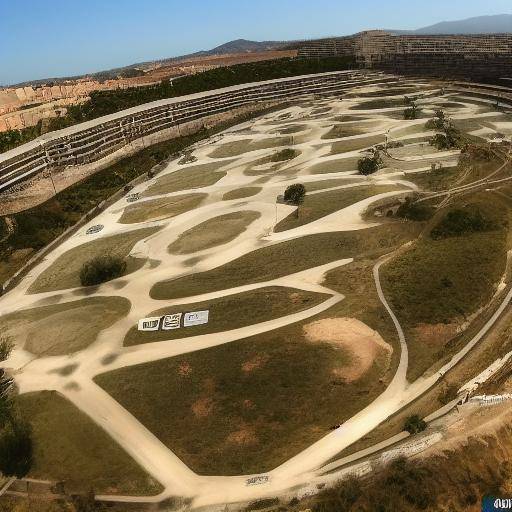
Introduction
Multi-project management involves a number of challenges that can be overwhelming for any team. However, with strong long-term planning and a well-defined strategy, it is possible to address these challenges successfully. In this article, we will explore in detail the importance of long-term planning in managing multiple projects, how it can contribute to efficiency and effectiveness, and provide practical advice based on best practices and actual experiences.
History and Background
Long-term planning in project management has its roots in ancient civilizations that planned long-term projects, such as building monuments and large architectural works. Over time, project management evolved to include multiple projects simultaneously, leading to the need for long-term strategic planning to effectively coordinate and manage these projects.
This evolution led to the development of specific methodologies and tools for long-term planning in project management, such as the use of Gantt diagrams, Kanban boards and project management software. These tools have enabled project teams to plan and coordinate multiple projects over time more efficiently.
Analysis in Deep
Long-term planning in multi-project management offers a number of significant benefits. Through long-term strategic planning, organizations can anticipate and mitigate potential problems, allocate resources more efficiently, and ensure that projects are aligned with the organization ' s long-term objectives. In addition, it allows teams to focus on the effective implementation of projects rather than dealing with uncertainty and lack of planning.
Exhaustive examination
The implementation of long-term strategies in multi-project management has become a key practice in many sectors. Companies adopting this planning philosophy often experience significant improvement in project delivery, increased return of investment and reduced costs. In addition, long-term planning fosters effective collaboration and communication among project teams, which contributes to cohesion and the achievement of common objectives.
One of the main reasons why organizations face challenges in managing multiple projects is the lack of a clear strategy and long-term planning. In the absence of a well-defined road map, teams can be lost in the execution of tactical tasks, and project coordination can become chaotic. That is why the implementation of a long-term strategy is essential for maintaining the focus on long-term goals and maximizing operational efficiency.
Comparative analysis
By comparing long-term planning in managing multiple projects with management without this long-term consideration, there is a clear difference in the results achieved. Those organizations that establish long-term planning have greater capacity to adapt to changes, proactively manage risks and maintain a coherent global vision as projects move forward. On the other hand, organizations that lack long-term planning often face difficulties in maintaining coherence between projects, which can lead to delays, deviant budgets and less satisfaction from stakeholders.
Practical Tips and Accessible Tips
In the light of the importance of long-term planning in managing multiple projects, it is crucial for organizations to follow some practical advice to improve their approach in this area. Some of the best practices include:
- Establish long-term clear objectives for each project and align it with the overall vision of the organization.
- Use project management tools to visualize long-term planning, such as Gantt diagrams and Kanban boards.
- Designate a long-term strategic planning team to monitor and adjust plans as projects evolve.
- Conduct periodic evaluations of long-term planning to ensure that it remains relevant and aligned with organizational objectives.
Industry Visions and Expert Reviews
By consulting experts in the field of project management, many views support the importance of long-term planning in managing multiple projects. Professionals emphasize that long-term strategic planning is critical to ensuring the viability, success and sustainability of projects, as well as to achieve a competitive advantage in the market.
Case Studies and Real Life Applications
To better understand the practical application of long-term planning in managing multiple projects, it is essential to analyse real case studies. Leading companies in different industries have successfully implemented long-term strategies that have enabled them to coordinate multiple projects efficiently, keeping a focus on long-term goals and generating significant results.
Future Trends and Predictions
The future of project management involves greater integration of long-term planning in multi-project management. With the advent of disruptive technologies and the growing complexity of business environments, the need for long-term strategic planning becomes even more crucial. Organizations in all industries are expected to adopt more holistic and long-term approaches to project management to achieve greater impact and sustainability over time.
Conclusions and FAQs
Conclusions
In short, the importance of long-term planning in managing multiple projects is undeniable. It allows organizations to efficiently manage multiple projects, ensuring alignment with long-term objectives and minimizing the risks inherent in the simultaneous implementation of projects. The adoption of a long-term strategy in project management provides a solid framework for decision-making, facilitates coordination between teams and maximizes the value given to stakeholders.
Frequently asked questions
Why is long-term planning important in managing multiple projects?
Long-term planning provides a comprehensive vision that effectively coordinates multiple projects, prevents resource conflicts and prioritizes strategic initiatives.
How does long-term planning affect the implementation of individual projects?
Long-term planning provides a clear time frame and strategic vision that positively influences the implementation of individual projects, ensuring coherence and alignment with long-term objectives.
What is the impact of long-term planning on risk management on projects?
Long-term planning allows us to proactively identify and address potential risks, which reduces the likelihood of negative impacts on project implementation.
How can organizations improve their focus on long-term planning in project management?
Organizations can improve their approach to long-term planning through the allocation of specialized resources, the use of advanced project management tools and the regular review of long-term strategies.
Is there a specific working framework for long-term planning in managing multiple projects?
Although there is no single working framework, several methodologies, such as agile project management and programme management, include long-term planning approaches.
How can companies analyze the long-term impact of planning implementation on project management?
Companies can analyze the long-term impact by evaluating long-term financial and operational results, increasing customer satisfaction, and aligning with the company's strategic objectives.
Conclusion
The importance of long-term planning in managing multiple projects is critical to the sustainable success of the organizations. By adopting a long-term strategic vision, organizations can effectively coordinate multiple projects, minimize risks and maximize efficiency and operational effectiveness. The implementation of long-term planning strategies is a distinguishing element in the management of modern projects, which provides a solid basis for the growth and achievement of long-term organizational goals.
This article has explored in depth the importance of long-term planning in managing multiple projects, highlighting its benefits, challenges and best practices. By understanding the significant impact of long-term planning, organizations can improve their capacity to manage projects efficiently and achieve outstanding results in a complex and evolving business environment.




















